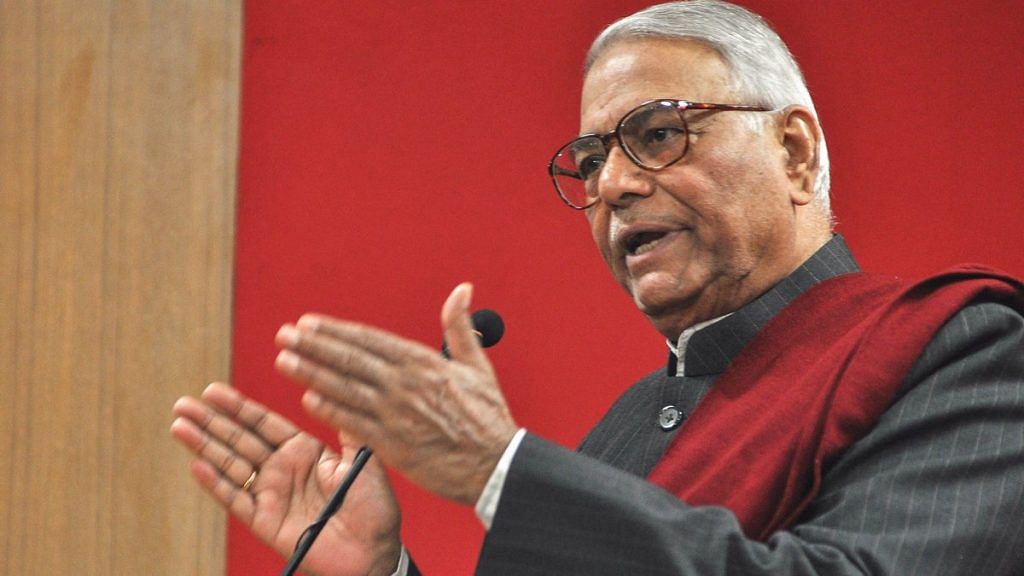I was never a member of the RSS. I have never, even out of curiosity, worn the khaki half pants or black cap or gone to a shakha. So, I cannot even lay a tenuous claim to this paternity that is the hallmark of the BJP. To curry favour with the powers that be, new entrants to the BJP often claim that they have attended the Sangh’s shakha as a child or, if not, their father might have.
Fortunately for me, as I have mentioned elsewhere in the book, this did not cause any major problems because I largely dealt with economic and foreign policy issues in the BJP, and not volatile, political ones like the Ram Mandir, Common Civil Code or Article 370 of the Constitution relating to Jammu and Kashmir. This was a huge relief to me because I was generally not required or expected to take positions on these issues.
I have already mentioned that Vajpayee and Advani used to invite me to their meetings with top Sangh functionaries whenever discussions were held on economic issues. I was attracted to the Swadeshi philosophy even before I joined the BJP. Thus, I had no ideological problems in working with the Swadeshi Jagran Manch on this issue, though differences cropped up between the Manch and me later, on the interpretation of this philosophy.
Also read: Economy last priority for politicians — Pranab Mukherjee agrees with Yashwant Sinha
My definition of it was simple – it is only the strong who can practice Swadeshi, not the weak. Therefore, we had to do whatever was needed to make India strong. I was never in favour of autarky. A foreign investor could take away his capital, but not his factory. I was opposed to the Dunkel proposals when they were presented to the World Trade Organisation and even travelled on a bicycle with about 200 companions from Hazaribagh to Patna, to sensitise people about the dangers of accepting these proposals, especially relating to agriculture. I still feel that agriculture is not merely an occupation in India. It is a way of life and must be protected and preserved at all costs. However, this does not mean that reforms in agriculture should be ignored. On the other hand, modern technology and practices must be used to make it more efficient, productive, competitive and lucrative.
In the Vajpayee government, discussions with the Sangh on economic issues had become increasingly infrequent. I was very keen that such discussions take place, so that we could explain the government’s policies to the Sangh. A few such meetings were indeed held but there was no meeting of minds. This led to further misunderstanding with the Sangh Parivar and I soon became a villain as far as they were concerned.
Guru dakshina (an old tradition in the Sangh, started by Guru Golwalkar) is a big annual event that is held everywhere the RSS is in existence, where they use the opportunity to collect money. Their annual collection is done on this day—the normal rule is to donate a month’s salary/earnings. It was initially supposed to be gupt daan (undisclosed charity) in an envelope, given when you salute the flag, and is a sacred occasion for the Sangh. This is no longer the case, where peeks at the amount are often followed by the words – as they once were directed towards me in Hazaribagh – ‘thoda kam tha’ (it was too little).
Also read: Modi must restore BJP to what it was in Vajpayee-Advani times: Yashwant Sinha
I always gave my guru dakshina at Hazaribagh and the RSS used to organise a special function there to suit my convenience. We would all assemble at the appointed place and time, fall in line, say our prayer and then sit down for the bauddhik or intellectual lecture delivered by some local Sangh functionary. To my great amusement, the talk would often be on economic or foreign policy. The head clerk of the electricity office, for example, who could be the chosen senior functionary, would deliver a lecture on economic or foreign policy and I, as the finance or foreign minister of India would sit there and listen to it.
The philosophy these lectures espoused was familiar to me. It was all about making India great, powerful, self-reliant and a vishwa guru, with which I had no problem. But objectives apart, it was the strategy to achieve them with which I was not in agreement. Most of these people were prisoners of an ideology that had long become irrelevant and they would repeat the same lecture everywhere and every time. Unfortunately, it carries great conviction with the gullible, as does the complete nonsense that is dished out by the ‘bhakts’ on social media these days.
Also read: Unfit father, worthy son earlier, roles reversed now, says Yashwant Sinha
My problems with the Sangh Parivar increased when I became the finance minister. In fact, senior Sangh functionaries would often approach me to help someone close to them. I used to listen to them carefully, would even try to help if the work was doable but, more often than not, I had to disappoint them. This may have been one of the reasons why the gap between them and me only widened as time went by. The rest, I suppose, was only a matter of time.
